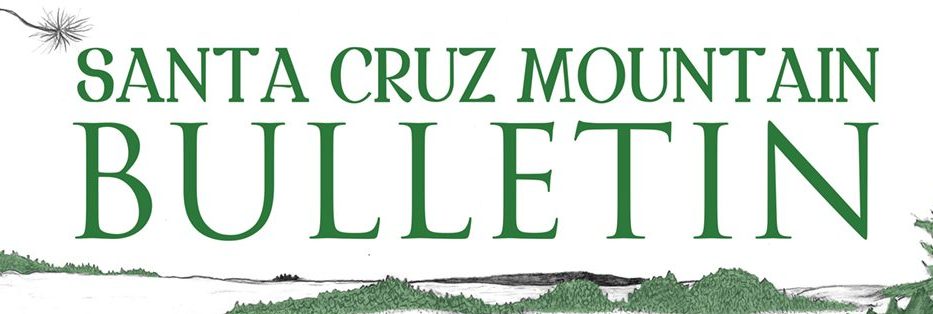Mark Dolson
Routine Business and an Electoral Mandate
The most recent regular San Lorenzo Valley Water District (SLVWD) Board meeting was on November 7th. The meeting lasted a little under an hour, and was devoted to fairly routine business.
Routine Business
The Board unanimously approved an invoice for $32,205.32 from VanDerSteen Engineering for work on the Bull Creek raw water pipeline performed and completed in late August and early September as part of the 2023 storm damage covered by FEMA. The Board also unanimously approved a one-year variance for multiple-user status for certain qualifying accounts, allowing them to be charged the $48.04 monthly basic fee (for a 5/8” meter) instead of the $72.56 monthly basic service fee (for a 1” meter).
Finance Consultant Heather Ippoliti delivered two separate reports. One was a financial status update in which she projected that the remaining $3 million in unspent debt proceeds will be fully spent by the end of this year. The other was a FEMA update in which she reported that SLVWD has 25 projects valued at almost $16.7 million in various stages of approval. Fifteen projects valued at $1.4 million are at the “Work Completed / Fully Documented / Obligated” stage. Of these, SLVWD has received full payment on four projects totaling $860,286, with an estimated $486,000 outstanding. SLVWD is working with a consultant, APTIM, to facilitate its FEMA interactions, but both FEMA and the State (which must relay FEMA funds to SLVWD) are continuing to move slowly.
The Board also sought clarification on a few details of the Staff’s Quarterly Status Reports.
Context
My goal in this column is to keep our community abreast of relevant developments in the operation of our water district. It has become increasingly clear to me, however, that this requires more than merely reporting the activities of the SLVWD Board of Directors. People also need to understand more deep-seated issues affecting SLVWD Staff, the Board, and our community, even though it can be more difficult to report objectively on these because different people may view them differently.
The latest and most significant development on this front concerns the results of the recent election. Voters expressed strong support (by a nearly 2-to-1 margin) for a particular SLVWD direction. I would summarize this vote as an overwhelming endorsement of responsible Board oversight and of Board-approved policies designed to remedy critical deficiencies in SLVWD infrastructure and financing. In particular, I think there are four key issues that the newly seated Board now has a mandate to address:
Staffing
Over the past few years, the District has had to contend with the loss of multiple senior staff members and with the stress of recovering from the 2020 CZU Fire and 2023 winter storm damage. Currently, there are three crucial open positions, two of which have been vacant for over a year: General Manager, Director of Finance, Environmental Programs and Special Projects Manager (who also oversaw grants and served as a Deputy General Manager). The first two are currently being filled by interim appointees, but these prolonged staffing deficiencies are severely limiting what SLVWD can accomplish and imperiling our collective future. Urgent and aggressive action is needed to address this.
Infrastructure
SLVWD infrastructure includes over 190 miles of pipeline, 47 water storage tanks, two water treatment plants, nine stream diversions, one groundwater spring, and eight active groundwater wells. SLVWD has a considerable backlog of infrastructure maintenance and replacement projects, but it has recently been making significant progress. Nevertheless, SLVWD is continuing to under-invest in this area (partly due to limitations in available staff), and this is likely to end up costing us all far more than any amount we might be saving today.
Consolidations
SLVWD is slowly moving toward consolidating Bracken Brae and Forest Springs, two small mutual water companies north of Boulder Creek that sustained heavy damage in the 2020 CZU Fire. However, SLVWD is committed to accomplishing this at no additional cost to current SLVWD customers, and this is proving to be an enormous challenge for all. Some grant funding has been secured, but this is only a fraction of what is ultimately needed. Trying to similarly come to the aid of Big Basin Water at some future date will present an even bigger challenge.
Affordability
Water districts across the state are struggling to contend with rapidly escalating expenses. For SLVWD, this challenge is compounded by the inherently higher costs of delivering water in very mountainous terrain. SLVWD can’t avoid passing these costs on to its customers, but it also has a responsibility to assist those customers who can least afford this. SLVWD’s Ratepayer Assistance Program provides a monthly discount to customers who meet PG&E low-income guidelines. This is a good first step, but there appears to be a community consensus that SLVWD can and should do even more.
The next regularly scheduled public meeting of the Board of Directors will be on November 21st at 6:30 PM.

